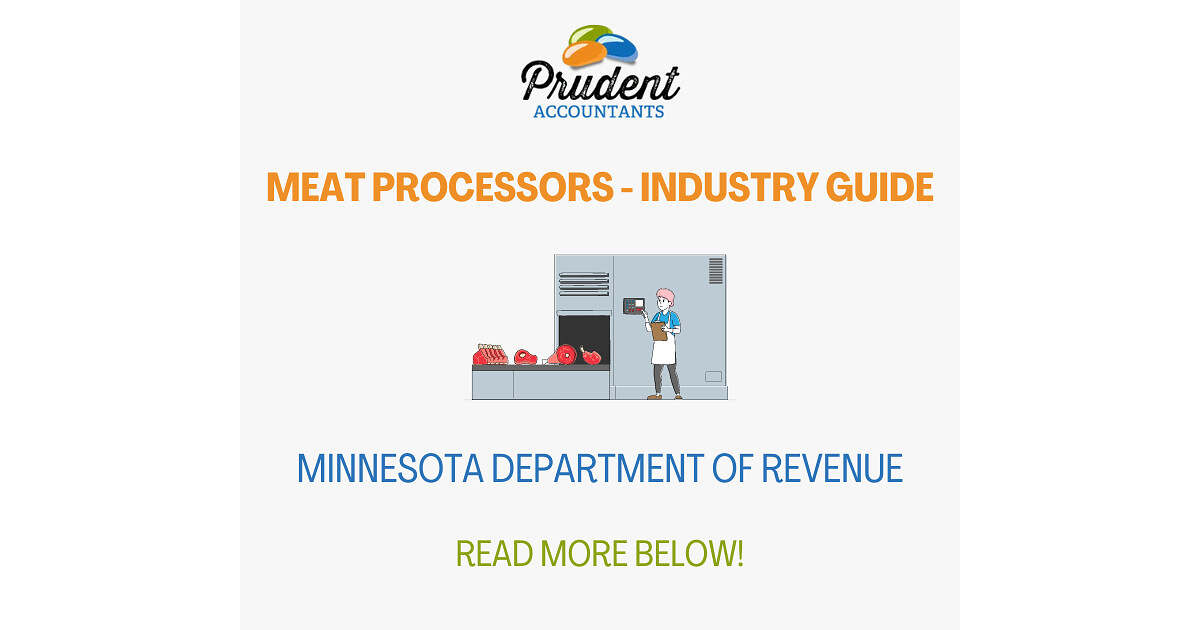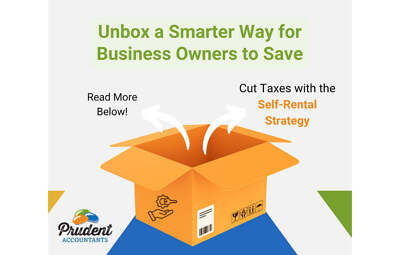Meat Processors – Industry Guide – Minnesota Department of Revenue

Minnesota Statute 297A.68, subd. 2 provides an exemption for materials used or consumed in the processing of meat if the meat will ultimately be sold at retail, either by you or by your customer. Generally, meat processors are involved in two different types of sales, sales of meat at retail or the service of processing meat. For purposes of the sales tax exemption, it is important to distinguish between the two types of sales.
Retail Sales
A retail sale occurs when you purchase, cut, and wrap meat for direct retail sale at a butcher shop or grocery store. You may also contract with other retailers to process meat that they will sell through their retail businesses. In either of these situations, you are producing a product for sale at retail. Materials used or consumed in processing meat for sale at retail may be purchased exempt from sales tax.
Another part of your business is to process meat for farmers that they later sell to others. These farmers may or may not be in the business of making retail sales of meat. If the farmer holds himself out to the public for the sale of meat and advertises meat for sale through public advertisements, the farmer is also considered to be a retailer. However, a farmer who does not advertise meat for sale, but occasionally has beef butchered and sells the meat to others, is not in the business of making retail sales.
Processing as a Service
When you process meat furnished by your customers for their own use or for occasional sale by farmers as previously described, you are providing a service – not a retail sale. Since you are not making a retail sale, you must pay sales tax on the cost of the materials used to process and package the meat.
How to Claim the Exemption
Determine what percentage of your purchases qualify for exemption, then give your supplier a completed Form ST3, Certificate of Exemption, showing the percentage of exemption you are claiming.
Only materials used or consumed in processing meat for sale at retail as described in “Retail Sales” can be purchased exempt from sales tax. Wrapping materials used to package the meat for sale, chemicals used to clean food processing equipment, and utilities (electricity, gas, steam, etc.) used to operate equipment or machinery to process the meat can be purchased exempt from sales tax.
Remember, this exemption applies only to items used or consumed in the production process. You must pay sales tax on items such as office supplies, processing machinery and equipment, and utilities used for space heating or lighting, or to run coolers and freezers used to store the meat before or after processing
Packaging Materials
In order to determine the percentage of packaging materials such as wrapping paper and tape to be purchased exempt from sales tax, you simply need to determine what percentage of your total sales are retail sales as described above. To substantiate the percentage claimed, obtain a written statement from your customers to indicate that they are in the business of making retail sales of meat and be able to show, through your own records, the amount of meat processed for retail sale.
Complete Form ST3, Certificate of Exemption, showing the percentage of exemption you are claiming and give the certificate to your supplier. The supplier will then charge you sales tax only on the taxable portion of your purchases.
Cleaning Chemicals
Cleaning chemicals used to clean food processing equipment when the food processed is for sale at retail can be purchased exempt from sales tax. Chemicals used to clean food processing equipment used in providing a service and chemicals to clean walls, floors, etc., are taxable.
Determine which chemicals are used to clean your food processing equipment and apply the percentage of total sales that are retail (as determined for packaging materials above) to arrive at the percentage to claim as exempt.
Complete Form ST3, Certificate of Exemption, showing the percentage of exemption you are claiming and give the certificate to your supplier. The supplier will then charge you sales tax only on the taxable portion of your purchases
Utilities
Determine the percentage of your total utility usage (electricity, gas, steam, etc.) used by your production machinery – do not include space heating and lighting. Apply the percentage of your total sales that are retail sales (as determined for packaging materials above) to arrive at the percentage of utility service to claim as exempt.
Example: You have determined that 20% of your total sales are sales at retail. Your average monthly electrical consumption is 1500 kilowatts. Your production equipment uses an average of 500 kilowatts per month. You can claim an exemption for 7% of your total electrical usage.
Computation: 500 ÷ 1500 = .33 x .20 = .07
(7% exemption)
Complete Form ST3, Certificate of Exemption, showing the percentage of exemption you are claiming and give the certificate to your utilities supplier. The supplier will then charge you sales tax only on the taxable portion of your utility bill.
Review Exemption Certificates
Meat processors are asked to review the exemption certificates they have issued to suppliers. If you have not been claiming the proper amount of exemption on utilities and materials, provide an updated exemption certificate to your suppliers.
If, in reviewing your exemption certificates, you find that you have overpaid sales tax to your suppliers, complete a new exemption certificate and give it to your supplier with a request for a refund of the sales tax overpaid. The supplier will then file an amended return to obtain refund of the tax from the state. Amended returns must be filed within three and one half years after the original return was filed.
Equipment Sales
If you sell equipment or other items that were used in your business, the sale may be subject to sales tax.
For more detailed and specific information on Meat Processors, you can contact Prudent Accountants, or visit at Meat Processors – Industry Guide – Minnesota Department of Revenue








